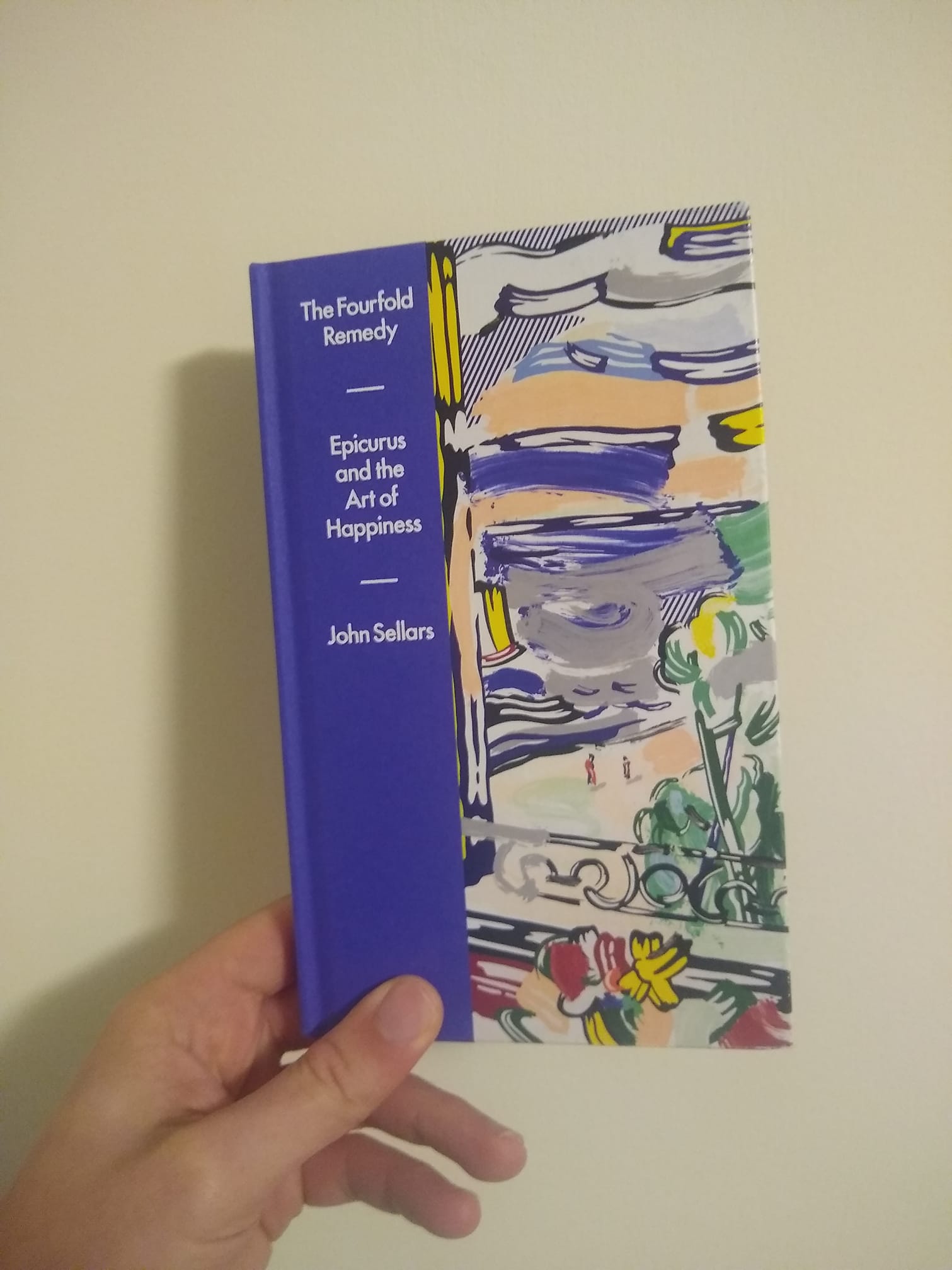Do you consider yourself an epicurean? Do you enjoy fine food and a pleasurable lifestyle? Being an epicurean is different to being an Epicurean, as in following the teachings of Epicurus.
The philosophy of Epicureanism is often misunderstood as a hedonistic worldview and I’ll admit to thinking that too when I first came across it. After reading The Fourfold Remedy: Epicurus and the Art of Happiness by John Sellars I was glad to be proven wrong.
A wonderful book on an introduction to Epicureanism, The Fourfold Remedy sets the record straight.
Making the distinction between epicureanism and Epicureanism
From the first page, Sellars sets out the differences between lower case epicureanism and capital letter Epicureanism. He starts with an introduction into the life of Epicurus, who created his Garden to live a simpler lifestyle away from the noise of the world. His teachings were powerful enough that they lasted for thousands of years and Sellars notes the religious fervor of the movement:
“A cult of Epicurus developed, just as it did around the Buddha in India. Pliny the Elder reports that this continued among Roman admirers of Epicurus, who offered sacrifices on his birthday and carried around small portraits of him. This might make Epicureanism sound more like a religious movement than a philosophy based on dispassionate reason.
Yet in the cases of both Epicurus and the Buddha, these were simply acts of admiration for mortal men preaching advice on how to overcome human suffering.”
In sharp contrast to the gourmand who has a voracious appetite for sex and food, Epicurus lived a modest lifestyle sustained by bread, water and the occasional pot of cheese. Sellars points out that the philosophy isn’t about the mindless pursuit of pleasure, but rather a nuanced difference between static and active pleasure.
“For instance we might distinguish between the active pleasure of eating and the subsequent static pleasure of being full up and no longer hungry. Although we might enjoy the process of eating, Epicurus argued that the reason why we eat is in order to reach the state of not being hungry.
Our goal is not the pleasure of eating, but overcoming the pain of hunger.”
Put another way:
“There’s nothing at all wrong with enjoying the very best of culinary pleasures when they present themselves, so long as we don’t come to expect them at every meal. Fine dining may not be required for us to satisfy our hunger, but it does offer welcome variety. The way to avoid coming to expect this all the time, Epicurus suggested, is to be suitably grateful whenever we are fortunate to be able to enjoy such pleasures.”

The importance of friendship and Epicureans from different backgrounds
Another vital part of Epicureanism is the focus on friendship. According to Epicurus, true pleasure came from sharing experiences with friends and being able to support each other in every situation.
“The best type of friend, Epicurus commented, doesn’t reduce a relationship to mutual support but neither do they deny the role that such support plays. As he put it, the former reduces friendship to a mere commercial transaction, while the latter destroys any sense of security for the future.”
Sellars also references a number of interesting Epicureans, such as the famous poets Lucretius and Horace, who referred to the philosophy in their works. Epicureanism also found admirers in Brutus and Cassius, the murderers of Julius Caesar, and even Caesar’s father in law Lucius Calpurnius Piso.
At its core, Epicureanism is about finding a path to the good life by avoiding pain and seeking pleasures that put the mind at ease. Whether you agree with the philosophy or not, The Fourfold Remedy is an excellent book and it opened my mind.